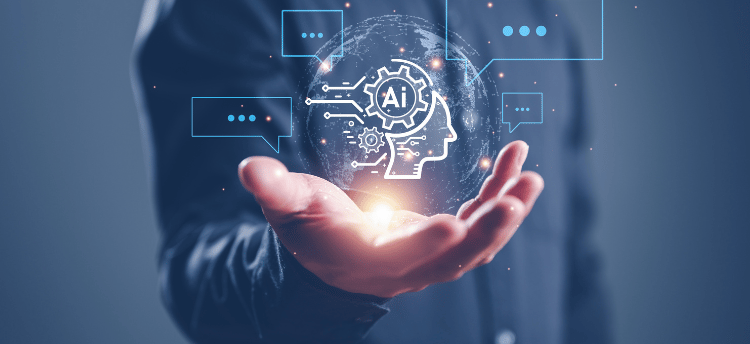Artificial Intelligence in Health: How Technology Is Revolutionizing Well-Being
Discover how AI is transforming diagnoses, treatments, and healthcare management.
Living in Harmony Team
1/29/20252 min read


Artificial Intelligence in Health: How Technology is Revolutionizing Well-Being
Technology has been advancing rapidly, and one of the sectors most impacted by these innovations is healthcare. Artificial Intelligence (AI) is no longer just a futuristic concept but a reality that is revolutionizing how doctors, hospitals, and patients manage diagnoses, treatments, and disease prevention. If you want to understand more about how AI is transforming health and well-being, keep reading this article!
What Is Artificial Intelligence in Health?
Artificial Intelligence refers to systems and programs that simulate the human ability to learn, analyze, and make decisions. In the healthcare field, AI is being used to interpret medical exams, assist in the early diagnosis of diseases, and even suggest personalized treatments.
More Accurate and Faster Diagnoses
One of the great advantages of AI is its ability to quickly analyze large volumes of data. Advanced algorithms can identify patterns in imaging exams, such as CT scans and MRIs, increasing diagnostic accuracy and reducing medical errors. This is especially useful for detecting serious diseases, such as cancer, in their early stages, ensuring more effective treatment.
Virtual Assistants and Chatbots in Medicine
Virtual assistants and chatbots are becoming increasingly common in healthcare. They help patients schedule appointments, clarify symptoms, and even provide basic first aid guidance. These tools make healthcare more accessible and efficient, reducing the burden on hospitals and clinics.
Personalized Medicine with AI
With the use of AI, doctors can offer personalized treatments based on each patient's genetic profile. This means medications and therapies can be adjusted to enhance efficacy and reduce side effects. AI also helps in the development of new drugs, accelerating research that would take years to complete manually.
AI-Assisted Robotic Surgeries
Surgical robotics is already a reality in many hospitals around the world. With AI, these robots are capable of performing minimally invasive procedures with extreme precision, reducing risks and accelerating patient recovery. Additionally, surgeons can rely on AI assistance to make decisions during operations.
AI in Disease Prevention
In addition to diagnosing and treating diseases, AI is also being used in disease prevention. Health apps monitor data such as heart rate, physical activity levels, and sleep patterns, alerting users to potential issues before they become serious. This allows people to adopt healthier habits and avoid future complications.
Challenges and Ethics in the Use of AI in Healthcare
Despite all the benefits, the adoption of AI in healthcare also raises ethical questions and challenges. The use of sensitive patient data must be protected from privacy violations. Furthermore, excessive reliance on technology can create challenges in medical decision-making, requiring a balance between human expertise and automation.
Conclusion
Artificial Intelligence is shaping the future of healthcare, bringing greater efficiency, accuracy, and accessibility to the sector. From faster diagnoses to personalized treatments and disease prevention, technology is significantly improving people's quality of life.
What do you think about the use of Artificial Intelligence in healthcare? Share your opinion in the comments!
Want to know more about how to live in balance? Follow Living in Harmony through the website primeconexao.com and on social media to discover new ways to care for your body and mind.
Living in Harmony - @primeconexao
Tips for a balanced lifestyle.
Prime Conection
contact@primeconexao
© 2024. All rights reserved.
primeconexao360@gmail.com
